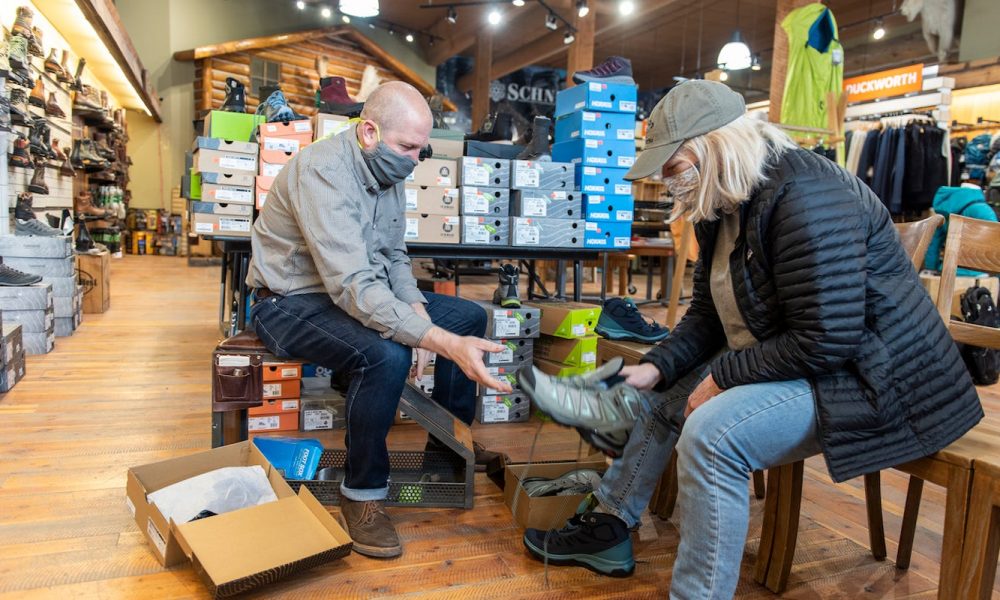Workplace discrimination
Adam J. White, Opinion contributor
Published 6:00 a.m. ET May 29, 2020 | Updated 10:03 a.m. ET May 29, 2020
CLOSE![]()
The 10th Amendment protects state powers and puts a hamper on presidential powers. Here’s how the fight for control is playing out today.
USA TODAY
Workplace discrimination The goal should be not to focus on liability as an end, but as the means for society to reset expectations for conduct in the new COVID-19 economy.
The American economy thrives on trust. Customers normally don’t pause at each storefront, or employees at the time clock, trying to decide whether it’s physically safe to enter. Instead, we trust that businesses will be kept safe and clean – not simply because it’s the right thing to do but because laws will hold them responsible when they fall short of basic standards.
Americans normally can take these things for granted because of the deep set of expectations, habits and laws that operate quietly in the background of daily life. Government is part of this through myriad regulations set by local, state and federal policymakers, but also through the courts that create and maintain laws of “negligence” and other standards defining what precautions businesses must undertake to keep their customers and employees safe from harm.
It’s not a perfect system, to say the least. Countless regulations are overdue for reform; businesses often fail to do the right thing; and frivolous lawsuits often get filed against faultless businesses. But the imperfect system works well enough to foster enough predictability and trust for all of us – customers, employees, business owners – to live our daily lives.
Or at least we did until COVID-19. Among the many things that the coronavirus took from us is this normal trust and predictability. After two months of economic hibernation and fast-changing expectations about how to avoid infecting each other with COVID-19, none of us can take for granted what precautions we need to take to protect each other and ourselves, and what others are responsible to do to help deter the spread of the virus.
As governors and the president announce that they are “reopening” the economy, businesses are nervous. The National Federation of Independent Businesses reports that nearly 70% of its small-business members are concerned about being held liable for people’s COVID-19 infections. And when businesses do open their doors, will customers and employees feel comfortable walking through them?
Workplace discrimination Focus on rebuilding trust
To genuinely reopen our economy, we must start by rebuilding trust and reestablishing expectations. This should be the goal of any legislative efforts on this issue: not to focus on liability as an end in and of itself, but as the means by which society resets everyone’s expectations of how to conduct themselves in the new COVID-19 economy.
President Donald Trump and congressional Republicans have focused on minimizing businesses’ liability. In mid-April, the president said he wanted “to take liability away from these companies,” because “we want the companies to open and to open strong.”
Share your coronavirus story: Contact USA TODAY Opinion’s hotline. We may publish your comments.
More recently, Senate Majority Leader Mitch McConnell and others have worked on legislation that would reduce, but not eliminate, businesses’ liability. Businesses would still be liable “for actual gross negligence and intentional misconduct,” but the law would “create a legal safe harbor” for those who “are following public health guidelines to the best of their ability.”
This approach echoes reforms enacted by Utah, which immunized its businesses against liability for COVID-19 infections on their premises except in cases of “willful misconduct,” or “reckless” or “intentional” infliction of harm.
Workplace discrimination What are ‘reckless’ actions?
Those reforms beg the question because no one actually knows what will qualify as “gross negligence,” “reckless” actions or the other vague standards. Are they defined by the latest announcements from the Centers for Disease Control and Prevention or World Health Organization? The president’s latest task force briefing? Until society settles upon basic understandings of what these concepts mean for COVID-19 precautions, the vague new legal standards would be litigated in countless lawsuits, undermining the reforms’ own purpose.
Opponents of liability reform often make the same mistake. Sen. Chuck Schumer, D-N.Y., criticized McConnell’s liability shield, urging that “if an employer makes an employee do something that is untenable, shouldn’t the employee have some rights here?” Others invoke “negligence” standards, arguing the businesses should be liable for “unreasonable” conduct. They, too, beg the question: No one knows what conduct by employers is “untenable,” “negligent” or “unreasonable,” with respect to COVID-19 precautions.
Lawmakers need to define these standards in terms that are clearly understandable and enforceable, establishing what precautions businesses should take and what precautions the rest of us are responsible for.
In writing those standards, lawmakers should listen to health experts and business owners to understand what precautions are necessary and reasonably expected in terms of cleaning surfaces, checking temperatures, screening at-risk populations, monitoring employees’ family health situations, requiring people to wear masks or other gear, or other precautions. No law can be written with perfect clarity, but lawmakers need to reduce uncertainty as much as possible, to incentivize good behavior and deter unmerited lawsuits.
Ideally, this would be done at the state and local level, in light of local conditions and expectations. But the overlay of federal regulations – for workplace safety, health information privacy, age discrimination and other issues – directly affects COVID-19 precautions. Congress will need either to recalibrate those regulations, or take the lead in setting nationwide rules for COVID-19 liability.
Adam J. White is a resident scholar at the American Enterprise Institute and director of George Mason University’s Gray Center for the Study of the Administrative State. Follow him on Twitter: @adamjwhitedc
Autoplay
Show Thumbnails
Show Captions
Read or Share this story: https://www.usatoday.com/story/opinion/2020/05/29/coronavirus-era-congress-must-redefine-rules-business-liability-column/5258965002/

